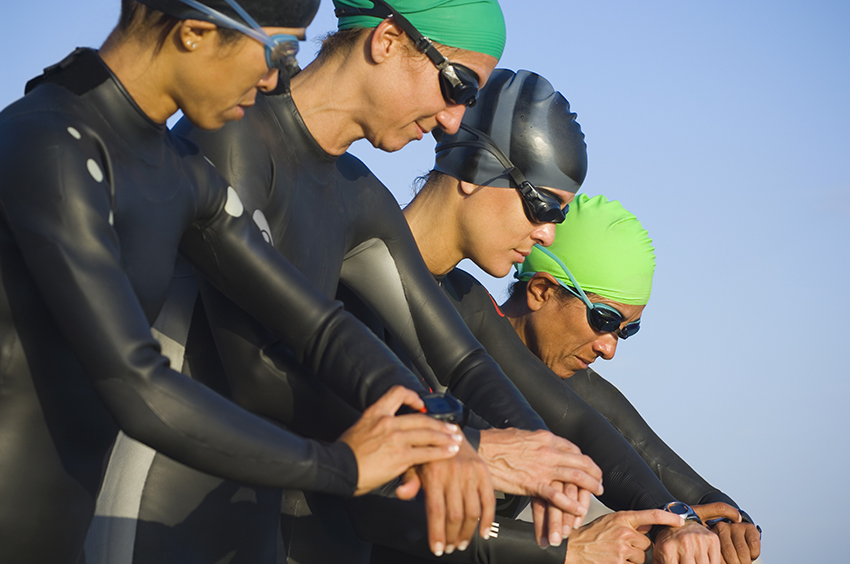
If it’s not there it can’t break. With this phrase, Henry Ford was refering to the simplicity of the Ford T. It could be considered equally relevant today, perhaps as an opener to a debate about getting back to “the basics” in the practice of sport. It is said than man is continually evolving to meet growing needs, but maybe we should ask ourselves if this new, avantguarde technology is driven by a real human need or something else instead.
I remember my Dad periodically adjusting the gear exchange on his old racing bicycle in the 80’s, usually just before and during the racing season. All you needed was patience, you developed the required with practise – the right tension, a bit of oil on the chain and every trip out on the bike was guaranteed.
I have a bicycle today that has an electronic gear-shifting system. The regulation is entrusted to a little button that does everything automatically, irrespective of the owner’s total ignorance. The gears change smoothly as oil, with one light touch of the lever on the handlebars. All you need to do is remember to charge the battery periodically and not leave the cables at home if you’re travelling. Just trust in its automony and in good fortune and everything will go just fine. Because if just one of these little things goes wrong, there won’t be anyone looking over you, the training session will be totally compromised. When an electronic gear shift stops working for some reason, it’s game over!
The sirens of modernity have also bewitched me in the field running. When I go out for a run today I have a computer attached to my wrist. Its software has infinite functionality and I probably don’t even know about half of it. At one time in my life I monitored my training sessions by running routes that had been measured out kilometre by kilometre. The stopwatch told me the speed at which I was moving my legs and my gasping breath indicated effort levels. Today I no longer need measured tracks because the GPS traces my runs wherever I go and tells me the distance. Today I hardly listen to my breathing, because I have a band tight around my chest that reveals, thanks to its sensors, my heart rate and from that deduces my effort and workload. The problem comes only when the GPS doesn’t pick up the satellite or when, perhaps in the woods, it tells me that I’m running a kilometre in 2 minutes 10. The problem lies however not in the odd inconvenience that stops the computer on my wrist from being entirely reliable, but in the fact that I am unlearning of years of “do it yourself” and having gained the habit of being constantly supported by technology, I can tumble into anxiety when that technology abbandons me.
These are are only two simple examples, but it is evident that the use of ever more complex tools and technology in sport have had a decisive impact on individual learning, making it much harder to develop the skills required to train without technology and creating a barrier between the user and the instrument.
I realise that this point is valid in many other areas of life today. If you want a copy of your remote control car key, you have to go back to the manufacturer, if it doesn’t work you’re stuck on foot. The automatic entrance gate at home is very convenient when it is raining, but you have to pray that it never breaks down otherwise you’ll end up sleeping in the car, or worse still, listening to it bang for hours if it goes crazy and activates an infinite cycle of opening and closing.
On the bedside table I have an entire box of chargers, each one with an applied label (they are all the same, so otherwise I’d mix them up). Every evening I have a check list of tasks from which I cannot deviate if I want to enjoy my daily hour of healthy relaxing sport the following day.
In the same way I recharge my mobile phone, I recharge my GPS wristwatch, I recharge the battery of the electronic gear shift of my bike, I download the data from my watch to my pc, I download the data from the bike computer to view the latest training sessions, I wash out the cardio belt I used today, recharge the battery of my mp3 so that I can listen to music tomorrow during training and I take a look at what the online trainer tells me about today’s training session. He will definitely conclude that my virtual partner – who challenges me every time I use my GPS device – has performed much better than me. Well it’s easy for him!
I’ll leave the reflections to others. I watch myself do all of these things, I smile at myself and the time that I dedicate to these processes, but in the end I enjoy it. Then when I want to enjoy training in a different way, I go out for a run with a naked wrist and I get my Dad’s old bike out from the garage.



 Subscribe to our newsletter to have the latest updates delivered straight to your inbox.
Subscribe to our newsletter to have the latest updates delivered straight to your inbox. TRI60 DISTANCE TRAINING
TRI60 DISTANCE TRAINING  Sportbox Training Focus Roma-Ostia Half Marathon 2019
Sportbox Training Focus Roma-Ostia Half Marathon 2019  Sportbox Training Focus Venice Marathon 2019
Sportbox Training Focus Venice Marathon 2019  t-shirt limited edition autographed by Danilo Goffi
t-shirt limited edition autographed by Danilo Goffi  Women's Sitting technical t-shirt
Women's Sitting technical t-shirt  Women's dove voglio technical t-shirt
Women's dove voglio technical t-shirt 